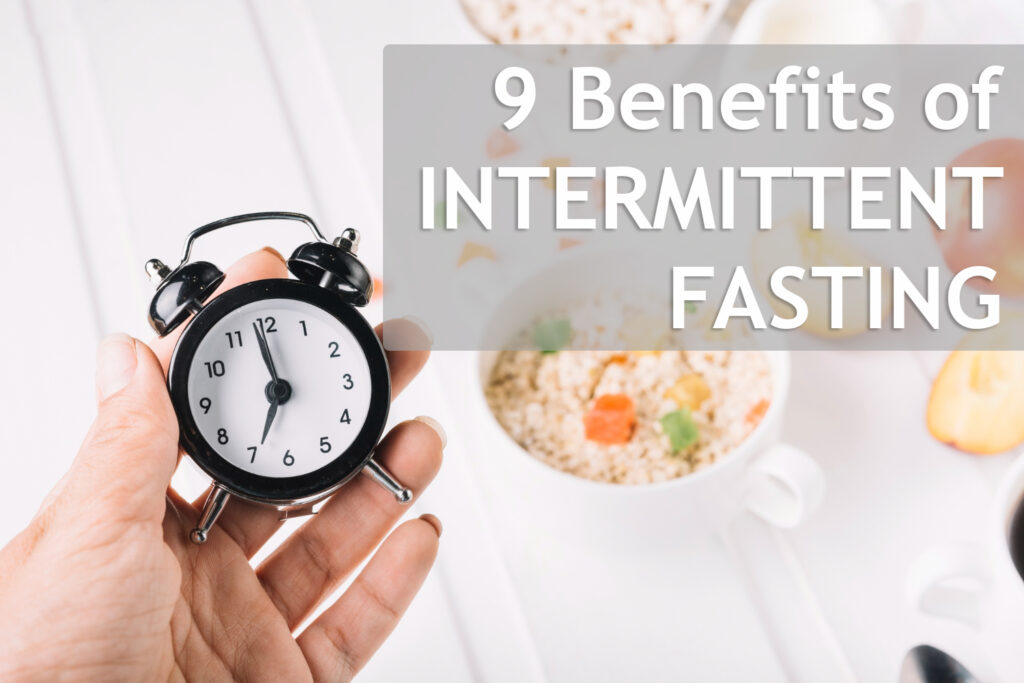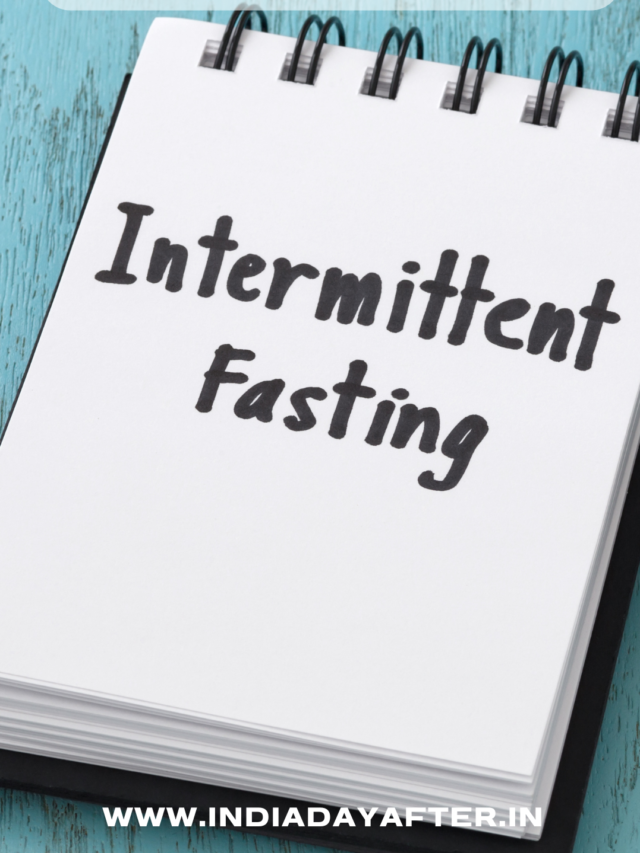Table of Contents
Intermittent fasting (IF): What exactly is IF? In recent years IF has become popular and people have adopted the IF lifestyle. People choose to improve their health and well-being without the need for drastic changes in dietary intake. By cycling between periods of eating and fasting, many claim to reap a myriad of health benefits.
This approach to eating is not about what foods to eat, but rather when you should eat them. Let’s dive into what intermittent fasting is and the nine key benefits it offers.
Grasp what exactly Intermittent Fasting is?
Unlike a traditional diet plan that focuses on what you eat, IF concentrates on when you eat. IF involves alternating cycles of fasting and eating.
Variety of IF Methods
There are several approaches to IF, each with its own set of rules:
16/8 Method: You need to eat all your meals within an 8-hour window. That means you fast for 16 hours straight.
5:2 Diet: You restrict your calorie intake to 500–600 for 2 days. And you eat normally for 5 days of the week in this method.
Eat-Stop-Eat: This is the hardest for many of us as it involves a 24-hour fast. Don’t worry, you just need to do it once or twice a week.
How Intermittent fasting Works?
Our body needs energy to function and in Intermittent fasting our body works by extending the period burning through the calories consumed during our last meal. Beyond certain period body jumps into fat deposits to produce energy.
Who Should Avoid It?
Intermittent fasting is not suitable for everyone. While IF can offer many benefits, people with certain health conditions, pregnant or breastfeeding women, and those with a history of eating disorders should avoid intermittent fasting.
Health Benefits of Intermittent Fasting
Weight and Body Fat Loss
By eating fewer meals, IF can lead to an automatic reduction in calorie intake. Additionally, fasting periods increase hormone function to facilitate weight loss. So, weight loss is one of the most sought-after benefits of IF.
Improved Insulin Sensitivity
IF lowers blood sugar by 3–6% and fasting insulin levels by 20–31%. This reduces insulin resistance and protects against type 2 diabetes.
Heart Health
Heart health is measured on the level of your triglycerides. IF has been shown to improve numerous risk factors for heart disease, such as cholesterol levels, blood pressure, inflammatory markers and of course triglycerides.
Brain Health
Alzheimer’s disease is widespread globally and people are seeking remedies to cure it. IF supports brain health by increasing brain-derived neurotrophic factor (BDNF) levels. It also aids in mental clarity and concentration. Potentially reducing the risk of Alzheimer’s disease.
Read more about Vegan Protein: Balancing Nutrition with Vegan Protein: A Guide to Mindful Eating
Increased HGH Level – Growth Hormone Secretion
HGH manages your energy consumption pattern and helps in endurance sports. To enhance muscle growth, strength, and metabolism. IF can kick start the human growth hormone (HGH) levels.
Potential Cancer-Fighting Properties
Although more human studies are needed. Animal studies suggest that intermittent fasting may help prevent cancer. When on IF your body hunts for oxidized cells and burns them for energy production. Oxidized cells are the precursors for Cancer.
Anti-aging Effects
By burning the oxidized and unhealthy cells in the body, it makes space for new rejuvenated cells that are new & healthy. This gives your skin a tightness and makes you look younger. More studies are needed in humans. However, some research indicates that IF can extend lifespan in rats.
Improved Digestive Health
A well rested gut performs well, fasting periods can help alleviate digestive issues, allowing the gut to recover.
Enhanced Physical Performance
Now we talked about fat burning. So, many athletes use IF to burn the last few grams of fats to optimize body composition and enhance physical performance.
- Crew Movie Release – Is it worth?
- Mukhtar Ansari Death – Conspiracy or Natural death?
- 2nd Explosive Aam Aadmi Party Amit Palekar Controversy – ED Allegations
- 9 Benefits of Intermittent Fasting
- Donald Trump’s Wealth hits $6.5 Billions
Tips for Starting Intermittent Fasting
To gain full benefits of IF, understand your body first. Choosing the method that fits your lifestyle, then make small changes to accommodate IF into your routine. Don’t be harsh on your body, it’s ok to quit a day if you are feeling groggy, you can start again tomorrow. Increase your current gaps between meals by 1 or 2 hours.
Conclusion
Whether you’re looking to lose weight, improve your metabolic health, or simply enhance your overall well-being. IF offers a flexible approach to improving your health without drastic dietary restrictions. IF might be worth considering.
FAQs
What is the best intermittent fasting method for beginners?
The 16/8 method is often recommended for beginners due to its simplicity and ease of integration into daily life.
Can I drink liquids during the fasting period?
Yes, water, coffee, tea, and other non-caloric beverages are allowed during the fasting period.
How long does it take to see results from intermittent fasting?
Results vary, but most individuals notice a difference in 10 to 12 weeks.
Is intermittent fasting safe for everyone?
No, individuals with certain health conditions, pregnant or breastfeeding women, and those with a history of eating disorders should avoid it.
Can intermittent fasting cause muscle loss?
If done correctly, intermittent fasting should not cause muscle loss; in fact, it can increase growth hormone levels, beneficial for muscle growth.
Read more about Intermittent Fasting HERE


